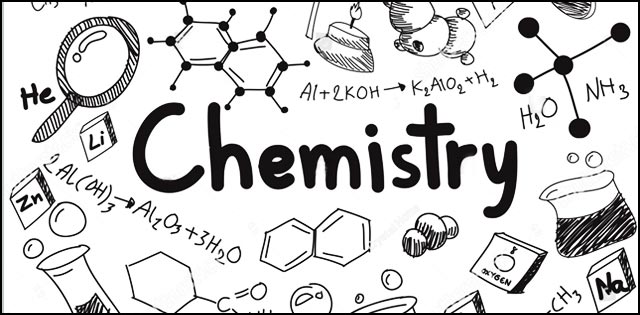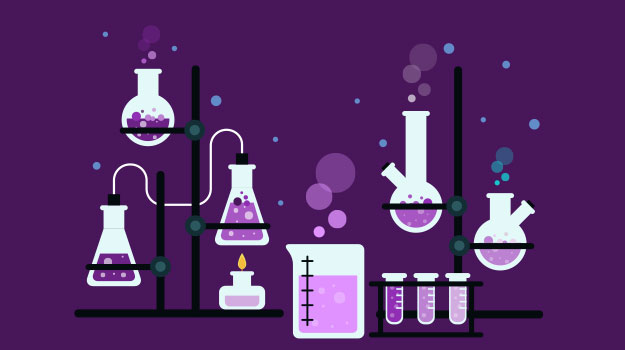Cambridge IGCSE Chemistry
Cambridge IGCSE Chemistry helps learners to understand the technological world in which they live and take an informed interest in science and scientific developments. The syllabus includes the basic principles and concepts that are fundamental to the subject, some current applications of chemistry, and a strong emphasis on practical skills. Learners also develop an understanding of the scientific skills essential for progression to Cambridge International AS & A Level, further education or a career related to science.
Aims of the Course
The aims are to-
• Provide an enjoyable and worthwhile educational experience for all learners, whether or not they go on to study science beyond this level
• Enable learners to acquire sufficient knowledge and understanding to:
– Become confident citizens in a technological world and develop an informed interest in scientific matters
– Be suitably prepared for studies beyond Cambridge IGCSE
• Allow learners to recognise that science is evidence based and understand the usefulness, and the limitations, of scientific method
• Develop skills that:
– Are relevant to the study and practice of chemistry
– Are useful in everyday life
– Encourage a systematic approach to problem solving
– Encourage efficient and safe practice
– Encourage effective communication through the language of science
• Develop attitudes relevant to chemistry such as:
– Concern for accuracy and precision
– Objectivity
– Integrity
– Enquiry
– Initiative
– Inventiveness
• Enable learners to appreciate that:
– Science is subject to social, economic, technological, ethical and cultural influences and limitations
– The applications of science may be both beneficial and detrimental to the individual, the community and the environment.

Syllabus
Candidates study the following topics-
- The particulate nature of matter
- Experimental techniques
- Atoms, elements and compounds
- Stoichiometry
- Electricity and chemistry
- Chemical energetics
- Chemical reactions
- Acids, bases and salts
- The Periodic Table
- Metals
- Air and water
- Sulfur
- Carbonates
- Organic chemistry
Objectives of Assessment
1. Knowledge with understanding
Candidates should be able to demonstrate knowledge and understanding of-
• Scientific phenomena, facts, laws, definitions, concepts and theories
• Scientific vocabulary, terminology and conventions (including symbols, quantities and units)
• Scientific instruments and apparatus, including techniques of operation and aspects of safety
• Scientific and technological applications with their social, economic and environmental implications.
2. Handling information and problem solving
Candidates should be able, in words or using other written forms of presentation (i.e. symbolic, graphical and numerical), to-
• Locate, select, organise and present information from a variety of sources
• Translate information from one form to another
• Manipulate numerical and other data
• Use information to identify patterns, report trends and draw inferences
• Present reasoned explanations for phenomena, patterns and relationships
• Make predictions and hypotheses
• Solve problems, including some of a quantitative nature.
3. Experimental skills and investigations
Candidates should be able to-
• Demonstrate knowledge of how to safely use techniques, apparatus and materials (including following a sequence of instructions where appropriate)
• Plan experiments and investigations
• Make and record observations, measurements and estimates
• Interpret and evaluate experimental observations and data
• Evaluate methods and suggest possible improvements.

Assessment
Paper 1
Multiple Choice
40 four-choice multiple-choice questions
Questions will be based on the Core subject content. Externally assessed
Weighting- 30%
40 marks
45 minutes
Paper 2
Multiple Choice
40 four-choice multiple-choice questions
Questions will be based on the Extended subject content (Core and Supplement). Externally assessed
Weighting- 30%
40 marks
45 minutes
Paper 3
Theory
Short-answer and structured questions
Questions will be based on the Core subject content. Externally assessed
Weighting- 50%
80 marks
1 hour 15 minutes
Paper 4
Theory
Short-answer and structured questions
Questions will be based on the Extended subject content (Core and Supplement). Externally assessed
Weighting- 50%
80 marks
1 hour 15 minutes
Paper 5
Practical Test
Questions will be based on the experimental skills in Section 4. Externally assessed
Weighting- 20%
40 marks
1 hour 15 minutes
Paper 6
Alternative to Practical
Questions will be based on the experimental skills in Section 4. Externally assessed
Weighting- 20%
40 marks
1 hour
Want to improve your grades? Request for one to one online tutoring at Vidyalai.com with the best teachers. 100% money back guarantee. Signup now!